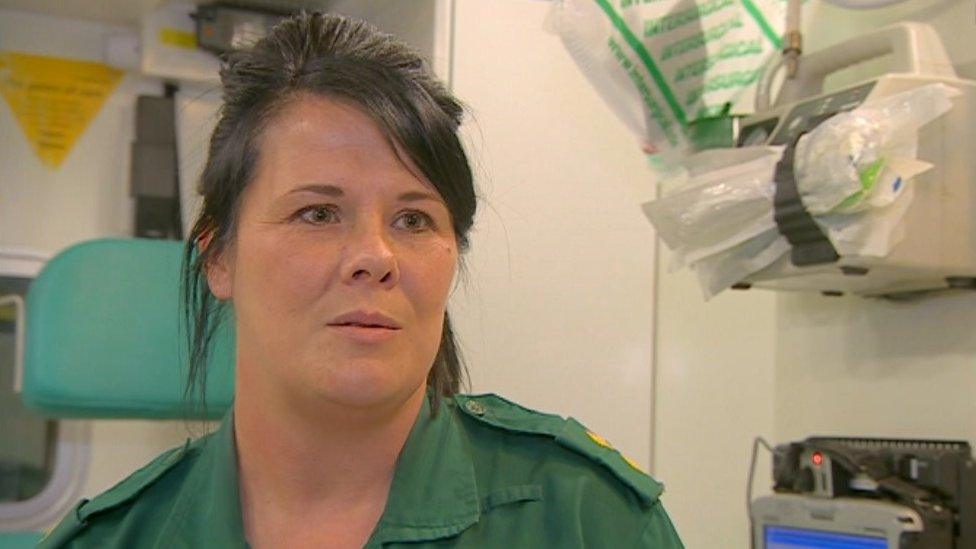Ambulance pressure: Life on the frontline
- Published
The BBC followed specialist paramedic Georgette on a typical day in her working life
Rising demand has left ambulance services struggling to reach seriously ill and injured patients quickly enough, a BBC investigation has found. But what is it like for a paramedic on the frontline?
Audrey, 84, says she has left-side chest pain. She has called out three ambulances in the last week.
Specialist paramedic Georgette checks her chest and performs an ECG.
There's nothing wrong and it seems she simply has some muscular pain.
Her dose of codeine is upped, which should quickly fix the discomfort.
But Audrey is insistent she needs to go to hospital and as time wears on her husband Bill, 86, is in tears.
He's simply not coping at home as the sole carer for his wife - who has dementia and now with the additional demands of her pain, is proving too difficult to look after.
Job 'within seconds'
Bill says he is embarrassed and ashamed to have repeatedly called for an ambulance when it's clear there is no emergency, but Georgette reassures him his social care problem has now become an emergency.
An hour into the visit and despite an initial plan to treat at home, it's clear Audrey and Bill cannot be left.
Georgette calls the local hospital, the Horton. It takes several attempts to get through.
Admitting Audrey to accident and emergency would mean long waits for her, so Georgette tries to have her admitted directly to a ward where she could be cared for.
The doctor on the ward is clearly unhappy to have a medically fit patient in one of his beds, but eventually agrees to admit her. Patient transfer is arranged within the next two hours.
Two hours into the first call of the day and we are back on the road.
Within seconds of getting into the car, another job is assigned.
An 83-year-old man has prostate cancer and feels faint every time he stands up. He has a heavy cold, but it's not so urgent that we have to put the blue lights on.
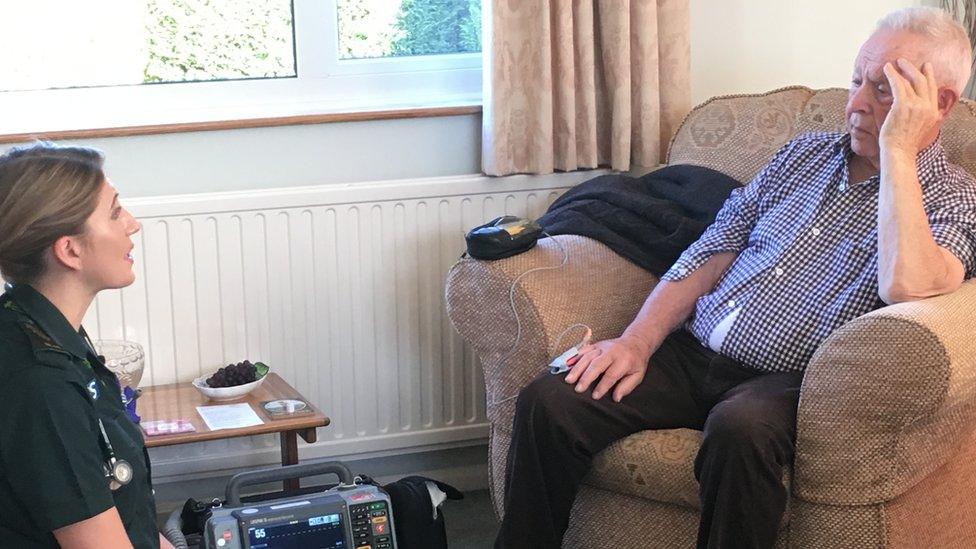
Gwin is having trouble standing up and says his head doesn't feel like it belongs to him.
Georgette checks his heart, lungs, blood pressure and chest, but can't find anything wrong.
Gwin's wife Barbara says she tried to call a GP, but didn't get a call back. One of the local GP practices closed recently, and the doctors are overwhelmed with the number of new patients.
Georgette gives Gwin advice on hydration and paracetamol and tells him she suspects he has inflamed sinuses.
He's not particularly happy that there's nothing more that can be done, but he's grateful for the care he's been given. An hour later we're ready to leave.
'Fobbed off'
There's a lull at midday, five hours into Georgette's shift.
We pop into a local ambulance depot where we have a cup of tea and a quick sandwich.
Another call comes in and it's straight back out to the paramedic car.
A nine-month-old baby is feverish and lethargic.
Imogen only weighs 14 pounds (6.35kg) and hasn't taken any solid food since last week.
She's pale, has a high heart rate and looks very dehydrated.
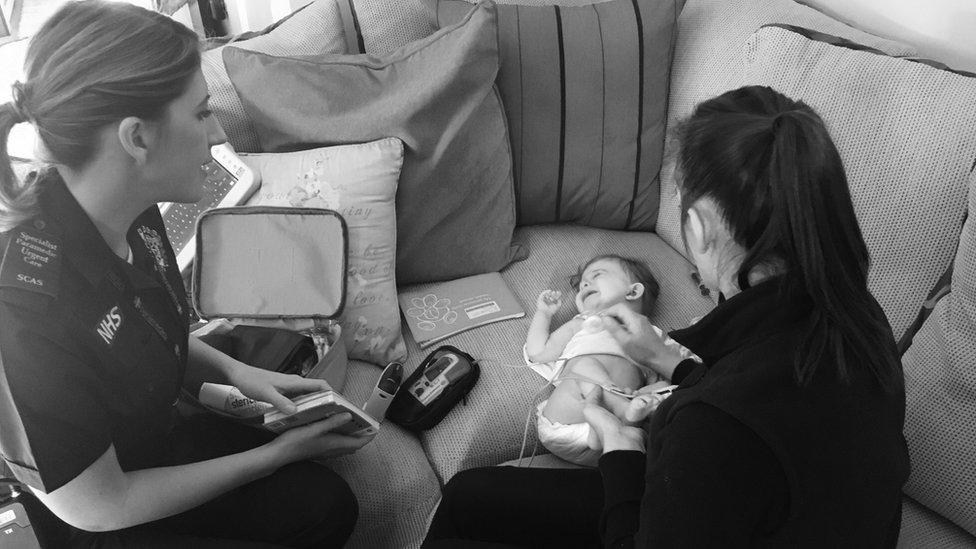
Imogen's mum Michaela has been in and out of accident and emergency and the GP surgery, and says she feels fobbed off.
After a short discussion Georgette calls another ambulance to transport Imogen to the paediatric emergency department at Stoke Mandeville Hospital, where she suggests a fluid challenge to rehydrate her.
Georgette travels along with Imogen to hand her over to hospital staff, which happens fast.
Just minutes later the next call is in: a 25-year-old man is unconscious. He had a head injury a week ago.
'Not safe'
We arrive at the house and it's clear Jamie and his mother have alcohol dependency issues - there are a couple of litre bottles of liquor out in the kitchen. Jamie is lying unresponsive on the floor.
Once Jamie is revived, Georgette and another ambulance crew that has responded move him to the sofa and try to assess him, but his incapacity makes it almost impossible.
They discover that he is confused, bruised and one pupil is larger than the other.
It's clear Jamie needs to go to hospital, but when he finds out, he's in tears.
His mother tells the paramedics she doesn't want Jamie to go to hospital either.
He can stay at home, she tells them.
But that simply isn't safe, and the crew decides to call Jamie's GP, in the hope that she can convince him to go.
Half an hour later, Jamie has been persuaded to put his shoes on and it looks as though he will reluctantly go to hospital for further tests, including a CT scan.
Georgette leaves Jamie with the other crew and returns to the car.
It's now nine and a half hours into her shift, with three and a half hours to go.
- Published30 November 2016
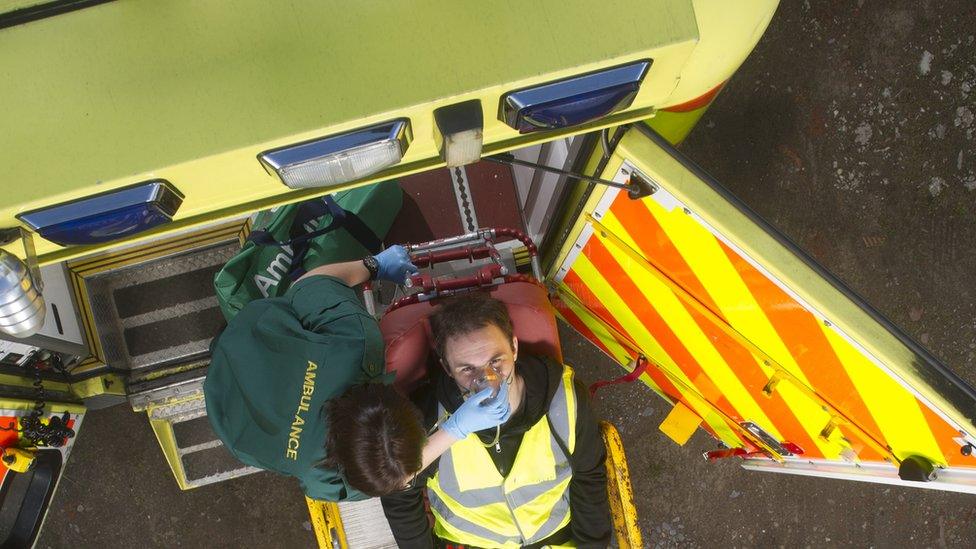
- Published18 October 2016
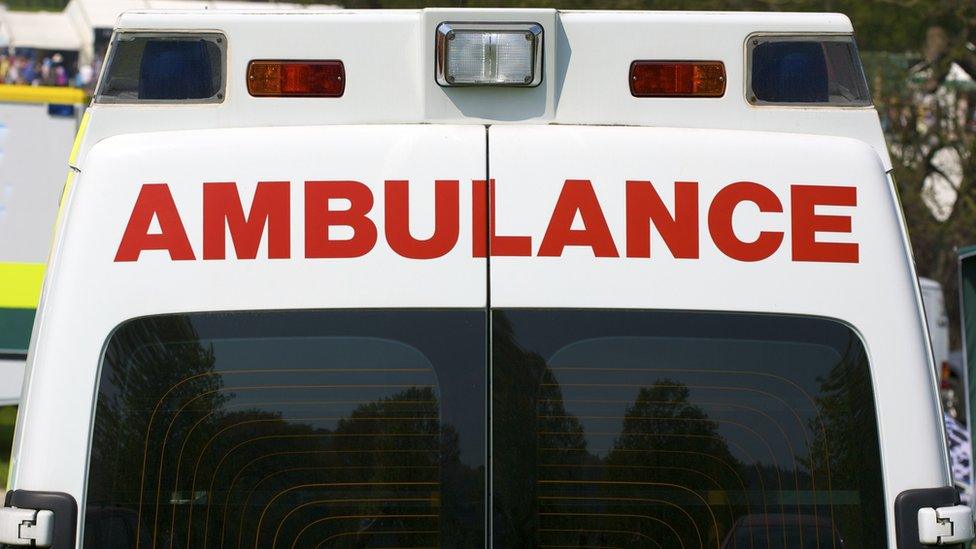
- Published3 June 2014
